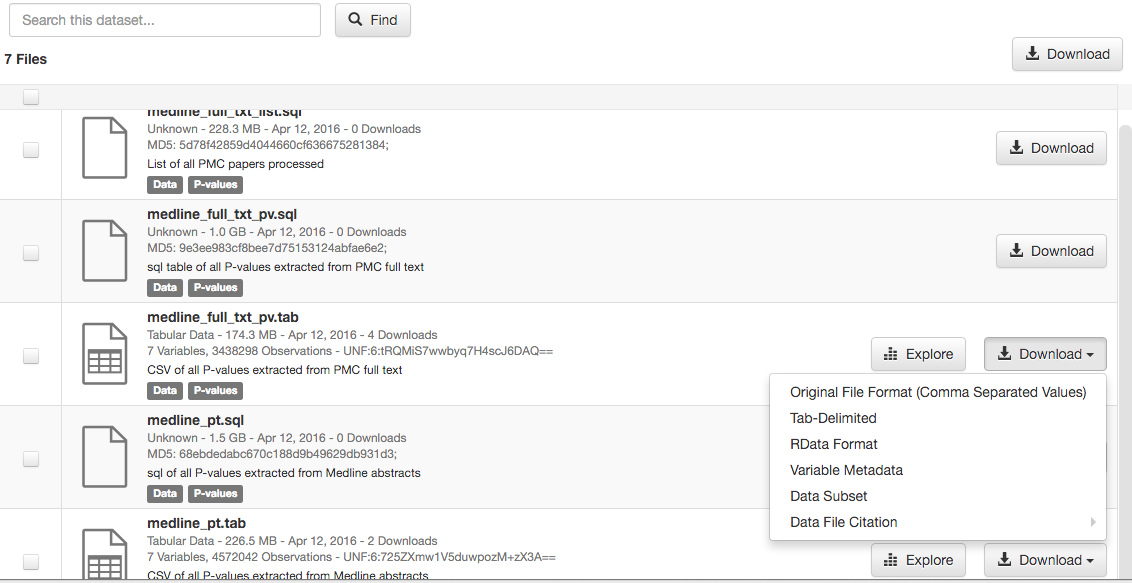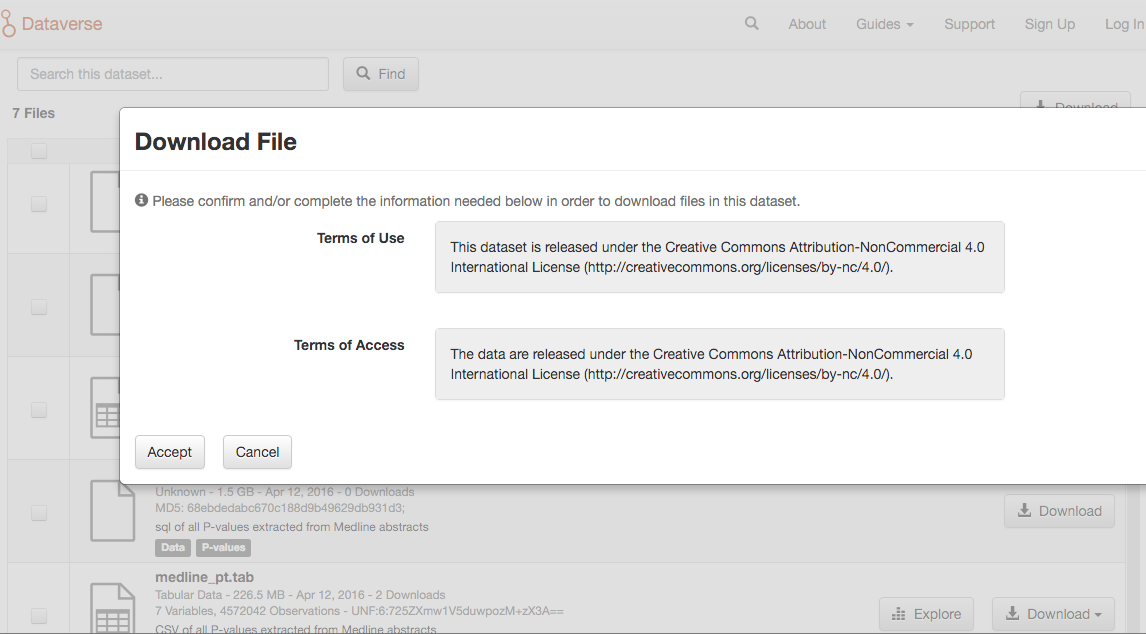As a data analyst the best data repositories are the ones with the least features
20 Apr 2016 By Jeff LeekLately, for a range of projects I have been working on I have needed to obtain data from previous publications. There is a growing list of data repositories where data is made available. General purpose data sharing sites include:
There are also a host of field-specific data sharing sites.One thing that I find a little frustrating about these sites is that they add a lot of bells and whistles. For example I wanted to download a p-value data set from Dataverse (just to pick on one, but most repositories have similar issues). I go to the page and click Download on the data set I want.

Then I have to accept terms:
Then I have to

Then the data set is downloaded. But it comes from a button that doesn’t allow me to get the direct link. There is an R package that you can use to download dataverse data, but again not with direct links to the data sets.
This is a similar system to many data repositories where there is a multi-step process to downloading data rather than direct links.
But as a data analyst I often find that I want:
- To be able to find a data set with some minimal search terms
- Find the data set in .csv or tab delimited format via a direct link
- Have the data set be available both as raw and processed versions
- The processed version will either be one or many tidy data sets.
As a data analyst I would rather have all of the data stored as direct links and ideally as csv files. Then you don’t need to figure out a specialized package, an API, or anything else. You just use read.csv directly using the URL in R and you are off to the races. It also makes it easier to point to which data set you are using. So I find the best data repositories are the ones with the least features.
 Follow us on twitter
Follow us on twitter